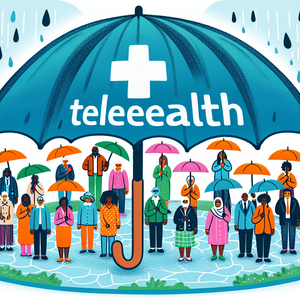
Healthcare Careers on the Rise: Exploring the Impact and Future of Advanced Practice Roles
The healthcare sector is in the midst of a profound evolution, propelled by the growing demands of an aging population, an expanding focus on preventive care, and an ongoing shortage of primary care physicians. Advanced practice providers (APPs), particularly nurse practitioners (NPs), are emerging as pivotal figures in addressing these challenges. According to the U.S. Bureau of Labor Statistics (BLS), the employment of nurse practitioners, nurse anesthetists, and nurse midwives is anticipated to grow by over 40% between 2023 and 2033, with nurse practitioners alone driving a staggering 46% of this growth. Such statistics underscore the critical role of these professionals in shaping the future of healthcare.
Job Summaries:
Nurse Practitioner (NP):
- Nurse practitioners deliver primary and specialized care, diagnose and treat illnesses, prescribe medication, and develop comprehensive health plans for their patients.
- Their scope of practice often overlaps with that of primary care physicians, particularly in states with full-practice authority.
- NPs need a master’s or doctoral degree in nursing, an active registered nurse (RN) license, and certification in a chosen specialty.
- With a projected growth rate of 46% by 2033, NPs are instrumental in bridging the gap in primary care, particularly in underserved communities.
- By 2025, more than 135,000 new NP positions are expected to emerge.
Certified Registered Nurse Anesthetist (CRNA):
- CRNAs are highly trained to administer anesthesia during surgical procedures, manage pain, and monitor patient responses in critical care settings.
- Becoming a CRNA requires a master’s or doctoral degree in nurse anesthesia, clinical training, and national certification.
- The demand for CRNAs is projected to grow by 10% over the next decade, with particularly strong opportunities in hospitals and outpatient surgical centers.
- These practitioners are among the highest-paid APPs, with median salaries exceeding $200,000 annually.
Mental Health Nurse Practitioner (PMHNP):
- PMHNPs specialize in diagnosing and treating mental health conditions, offering therapy, and prescribing psychiatric medications.
- Their work is critical in addressing the growing mental health crisis in the U.S.
- Advanced psychiatric nursing education and board certification are required to practice as a PMHNP.
- With the increasing prevalence of mental health disorders and a heightened focus on mental health awareness, demand for PMHNPs is expected to rise significantly.
- Demand for PMHNPs is particularly high in rural areas where mental health services are scarce.
Family Nurse Practitioner (FNP):
- FNPs provide comprehensive primary care to patients of all ages.
- They manage chronic conditions and emphasize preventive care.
- FNPs serve as a consistent point of contact for families.
- FNPs require a master’s or doctoral degree in nursing.
- Certification in family practice is necessary for FNPs.
- FNPs are the cornerstone of primary care delivery.
- They are in high demand, especially in areas with limited access to healthcare.
- FNPs ensure families receive continuous and holistic care.
Telehealth Nurse Practitioner:
- Telehealth NPs provide virtual consultations, diagnoses, and follow-ups using telemedicine platforms, enabling patients to receive care remotely.
- After completing advanced nursing education, NPs in telehealth roles often require additional training in telemedicine technologies.
- The COVID-19 pandemic accelerated the adoption of telemedicine.
- Demand for telehealth NPs continues to grow as healthcare systems leverage virtual care to reach patients in remote or underserved areas.
Geriatric Nurse Practitioner:
- These NPs specialize in the care of older adults, managing chronic conditions, and addressing the unique health challenges of aging populations.
- Geriatric-focused education and certification in gerontology are required.
- By 2030, over 20% of the U.S. population will be aged 65 or older, driving an unprecedented need for geriatric care.
- Geriatric NPs are essential in managing the complex health needs of this growing demographic.
Acute Care Nurse Practitioner (ACNP):
- ACNPs focus on treating patients with severe or critical conditions in settings such as emergency departments and intensive care units.
- A master’s or doctoral degree in acute care nursing and certification in acute or critical care are necessary.
- The fast-paced nature of hospital environments ensures that ACNPs will remain in high demand, particularly as hospitals tackle increasing patient loads in emergency and critical care settings.
The future of healthcare lies in the hands of skilled and compassionate advanced practice providers. From nurse practitioners to public health advocates, these roles offer an unparalleled opportunity to address pressing healthcare challenges while building a meaningful career. As the healthcare landscape continues to evolve, those who enter these dynamic professions will play a vital role in shaping the well-being of communities for decades to come. Whether you're drawn to the fast-paced environment of acute care, the growing field of telehealth, or the rewarding work of improving mental health access, there has never been a better time to embark on a career in advanced practice healthcare.
Explore More Jobs

